116 N. York Street, 3rd Floor, Elmhurst, IL 60126
 312-605-4041
312-605-4041
Recent Blog Posts
Getting Divorced After You Got Married Very Young
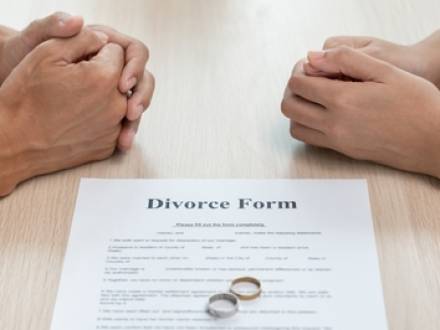 Marriage at a young age often brings hope, passion, and dreams of building a life together. But as the years pass, those early dreams can start to unravel, especially if the couple grows in different directions. Whether you married right out of high school, during college, or in your early twenties, you might now be wondering: What happens if you feel like you made the wrong decision?
Marriage at a young age often brings hope, passion, and dreams of building a life together. But as the years pass, those early dreams can start to unravel, especially if the couple grows in different directions. Whether you married right out of high school, during college, or in your early twenties, you might now be wondering: What happens if you feel like you made the wrong decision?
What does divorce look like if you are still young, have no assets, or still care about your spouse? This blog walks through what you need to know if you are thinking about ending a marriage that began when you were very young. If you do decide that divorce is the right way forward for you, our DuPage County, IL divorce attorneys are here to help you work through your options.
Can I Get Divorced in Illinois If I Am Still in My Twenties?
Illinois law does not impose an age limit for divorce, so long as you are legally married. If you were old enough to get married, you are old enough to file for divorce. Under 750 ILCS 5/401, one spouse must live in Illinois for at least 90 days before filing. If you meet that requirement, you can initiate the divorce process.
How Do Illinois Courts Handle Divorce When One Spouse Has Been Hiding Assets for Years?
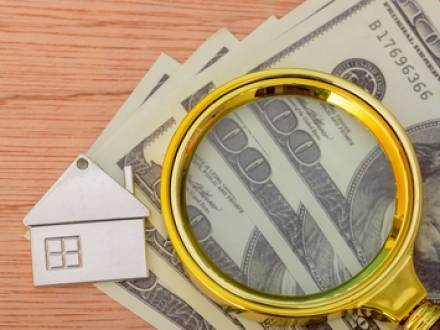 In Illinois, spouses have a legal duty to disclose all assets — marital and non-marital — during a divorce. When one party attempts to hide, transfer, or obscure the value of assets, the court may impose serious consequences. Judges have broad discretion to address this type of misconduct, and they often do so with significant financial penalties.
In Illinois, spouses have a legal duty to disclose all assets — marital and non-marital — during a divorce. When one party attempts to hide, transfer, or obscure the value of assets, the court may impose serious consequences. Judges have broad discretion to address this type of misconduct, and they often do so with significant financial penalties.
Whether the hidden assets involve secret bank accounts, undervalued businesses, cash-only income, or property titled in someone else’s name, the law allows for both aggressive discovery and decisive remedies. A skilled litigation team of Elmhurst, IL divorce lawyers with experience in tracing assets, issuing subpoenas, and examining financial records can make the difference between a fair outcome and a devastating loss.
The Duty to Disclose
Illinois courts expect both parties in a divorce to participate in full and honest financial disclosure. Under Illinois Supreme Court Rule 213(f), and more specifically within family law cases, each party must file a verified financial affidavit and submit supporting documentation. This includes bank statements, pay stubs, tax returns, and evidence of debts and expenses.
Clearing Up Common Misconceptions About Prenuptial Agreements in Illinois
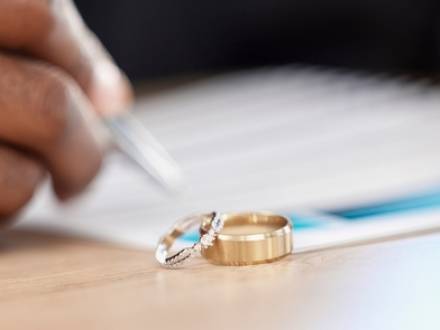 Clearing Up Common Misconceptions About Prenuptial Agreements in Illinois
Clearing Up Common Misconceptions About Prenuptial Agreements in Illinois
Prenuptial agreements: Are any other legal documents subject to more controversy and misunderstanding? Prenuptial agreements, also called premarital agreements or "prenups," are legal contracts that a couple signs before getting married – most of us understand that much.
However, many people seriously misunderstand the purpose of a prenuptial agreement. They assume that only couples who do not believe in the longevity of their marriage would sign a prenuptial agreement or that prenups are only used by wealthy husbands to prevent their wives from pocketing their wealth.
In reality, drafting a mutually beneficial prenuptial agreement is one of the most responsible and practical steps you can take before getting married. Prenups serve a wide range of purposes, including protecting both spouses' property rights, avoiding stressful litigation in the event of divorce, and describing how property should be distributed if a spouse passes away. Our Illinois family lawyers help couples write smart, enforceable prenuptial agreements that protect their wishes and honor their commitment to each other.
How Can I Keep My Dog if We Get Divorced?
 Divorce is often a painful process, not only for the couple involved, but for everyone — and everything — caught in the middle. This includes the family dog. If you are going through a divorce in Illinois and want to keep your dog or another pet, the law has evolved in ways that may help you. However, success is not automatic. You must be prepared to show the court why your continued care of the pet is appropriate, fair, and in the pet’s best interests.
Divorce is often a painful process, not only for the couple involved, but for everyone — and everything — caught in the middle. This includes the family dog. If you are going through a divorce in Illinois and want to keep your dog or another pet, the law has evolved in ways that may help you. However, success is not automatic. You must be prepared to show the court why your continued care of the pet is appropriate, fair, and in the pet’s best interests.
This blog will explore how Illinois courts now handle pets in divorce, how to demonstrate your connection to the animal, and how to respond if your spouse is acting in bad faith. When working with clients dealing with complex property division issues involving pets, our Illinois divorce attorneys will also examine practical concerns such as expenses, gifting, and the role pets play in children's emotional lives.
An Overview of a Divorce Trial: What to Expect
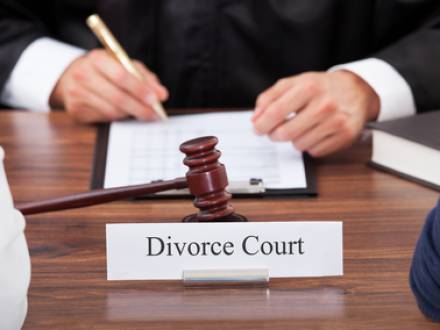 While most divorces in Illinois are resolved through settlement, sometimes litigation becomes necessary. When negotiations break down or major disagreements remain over issues like property division, child custody, or spousal maintenance, a trial may be the only way to resolve matters. If you are heading toward a divorce trial in DuPage County, knowing what to expect can help reduce stress and improve your ability to make informed decisions.
While most divorces in Illinois are resolved through settlement, sometimes litigation becomes necessary. When negotiations break down or major disagreements remain over issues like property division, child custody, or spousal maintenance, a trial may be the only way to resolve matters. If you are heading toward a divorce trial in DuPage County, knowing what to expect can help reduce stress and improve your ability to make informed decisions.
At Weiss-Kunz & Oliver, LLC, we prioritize mediation and collaboration whenever possible. These methods are often more efficient, less emotionally draining, and better able to give spouses more control over the outcome. However, we also know that some divorces—especially those involving high-value assets or deeply entrenched disputes—require strong courtroom advocacy. Our Elmhurst, IL divorce attorneys are prepared to fight for you when necessary, and we are committed to offering responsive, strategic representation every step of the way.
Frequently Asked Questions About Illinois Child Custody Cases
 Frequently Asked Questions About Illinois Child Custody Cases
Frequently Asked Questions About Illinois Child Custody Cases
When parents are facing a divorce or separation, or when unmarried parents decide to co-parent from separate households, one of the most challenging legal issues they will face involves the care of their children. In Illinois, child custody is addressed through a legal framework known as the "allocation of parental responsibilities" and "parenting time." While the terms may have changed from the older concepts of legal and physical custody, the concerns parents face remain the same: Who will make decisions for the children? Where will the children live? How can both parents stay actively involved?
At Weiss-Kunz & Oliver, LLC, we guide parents through every stage of the custody process. Whether you are filing for divorce, resolving parenting issues as an unmarried parent, or modifying an existing court order, our Illinois family law attorneys are here to help you understand your rights and protect your relationship with your children. Below are answers to some of the most common questions we receive about Illinois child custody law.
Answering Your Questions About Child Custody Evaluators
 When parents cannot agree on how to divide parenting time (visitation) or parental responsibilities (decision-making authority) after a divorce or separation, the court may bring in a child custody evaluator to help determine what arrangement would be in the child’s best interests. This can feel overwhelming, especially if you have never been through a custody case before.
When parents cannot agree on how to divide parenting time (visitation) or parental responsibilities (decision-making authority) after a divorce or separation, the court may bring in a child custody evaluator to help determine what arrangement would be in the child’s best interests. This can feel overwhelming, especially if you have never been through a custody case before.
Below, our Illinois child custody lawyers answer some of the most common questions about custody evaluators in Illinois to help you better understand what to expect, as well as what you can proactively do to protect your role in your child’s life.
What Is a Child Custody Evaluator?
A child custody evaluator is a professional — usually a licensed psychologist, social worker, or other mental health expert — who is appointed by the court to evaluate the family situation and make recommendations about parenting time and decision-making responsibilities. In Illinois, this process is governed by Section 604.10 of the Illinois Marriage and Dissolution of Marriage Act.
Why Work With a Boutique Law Firm for Your Divorce?
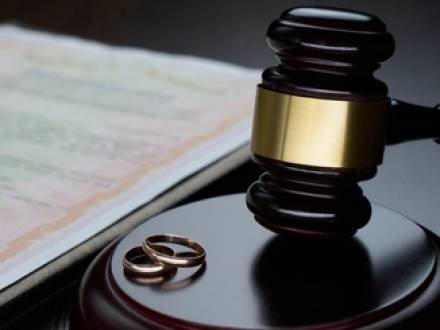 Divorce is a sensitive personal matter with high stakes, especially when significant assets, business interests, or child custody disputes are involved. In these complex cases, choosing the right legal representation can make all the difference.
Divorce is a sensitive personal matter with high stakes, especially when significant assets, business interests, or child custody disputes are involved. In these complex cases, choosing the right legal representation can make all the difference.
While some may assume that larger law firms offer superior services, a boutique family law firm with outstanding, focused attorneys often provides the personalized attention, strategic advocacy, and in-depth legal knowledge necessary for navigating a challenging divorce.
If you are facing divorce or other family law challenges in Illinois, Weiss-Kunz & Oliver, LLC offers distinct advantages that can directly impact your case's outcome. Below, we explore why working with our elite team of dedicated Illinois family lawyers can provide the best possible results.
What Sets Our Boutique Family Law Firm Apart?
The term "boutique" refers to a law firm that focuses on a particular area of practice rather than spreading its resources across multiple legal disciplines. Boutique family law firms dedicate their time, resources, and personal focus exclusively to cases involving divorce, child custody, financial settlements, prenuptial agreements, and other matters of family law.
What You Need to Know About Divorce and Mental Illness or Health Issues
Mental health conditions like depression and anxiety can drastically affect the course of divorce proceedings. Not only can they impact the tone of the divorce, but they can also play a role in decisions about child custody, financial support arrangements, and other important issues.
If you are planning to get a divorce and your spouse has a diagnosed or undiagnosed mental illness or other health issues, it is important to understand your rights. With representation from an experienced Illinois family law attorney who understands the potential for mental illness to affect divorce, you can protect your interests and determine the best ways to resolve any disputes you may encounter. At Weiss-Kunz & Oliver, LLC, we can help address these concerns during the divorce process, and we are prepared to fight for your rights and interests as you work to end your marriage successfully.
Building a Warm and Loving Home for Your Children During Divorce
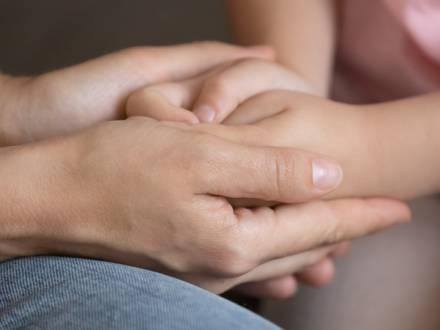 Divorce is a challenging experience for any family, but for children, it can be particularly unsettling. As parents, your primary concern is ensuring that your children continue to feel loved, secure, and supported during this transition. While the legal aspects of divorce can be complex — especially for high-net-worth individuals navigating demanding careers, managing important financial considerations, and sometimes even juggling a private life and a public persona — it is equally critical to focus on the emotional well-being of your children.
Divorce is a challenging experience for any family, but for children, it can be particularly unsettling. As parents, your primary concern is ensuring that your children continue to feel loved, secure, and supported during this transition. While the legal aspects of divorce can be complex — especially for high-net-worth individuals navigating demanding careers, managing important financial considerations, and sometimes even juggling a private life and a public persona — it is equally critical to focus on the emotional well-being of your children.
At Weiss-Kunz & Oliver, LLC, we understand that divorce is not just about legal resolutions; it is about creating a stable future for your family. By taking intentional steps, you can help your children adjust to their new reality while maintaining a warm and loving home environment. Below, our Illinois divorce lawyers explore key strategies for guiding children through divorce with compassion and care.





















